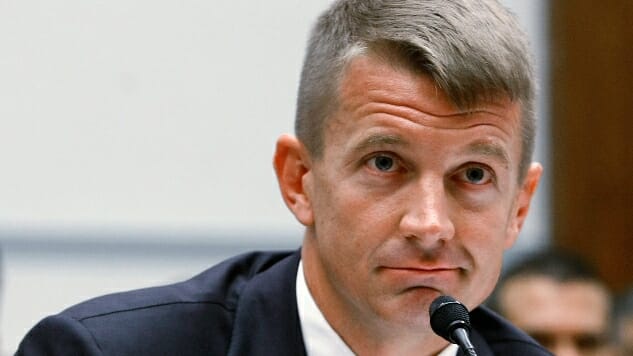Memo Reveals New Insight Into Secretive Seychelles Meeting Between Trump’s and Putin’s Allies
Photo by Mark Wilson/Getty
Special counsel Robert Mueller has been looking into a meeting between Trump’s and Putin’s allies as part of his larger investigation into Russian meddling in the 2016 election.
A little bit of backstory, in case you (somehow) forgot what we’re referencing: Erik Prince, former head of an American private military company, and Kirill Dmitriev, CEO of a Russian sovereign wealth fund, held a meeting just weeks before President Donald Trump’s inauguration. The twosome met on Jan. 11, 2017, at a hotel bar in Seychelles, East Africa. George Nader, a Lebanese-American businessman and advisor to the crown prince of the United Arab Emirates, was also present.
Around a year after the meeting, Prince told the House Intelligence Committee that his chat with the Russian Direct Investment Fund (RDIF) CEO was unplanned and took place “over a beer.” Prince also said he did not attend as a representative of Trump.
Since Prince’s testimony before Congress, Mueller’s team has received information that the meeting was a planned endeavor to set up a backchannel between the Trump administration and the Kremlin, according to The Washington Post.
“Why did that meeting happen?” said Rep. Jim Himes, a Democratic member of the House Intelligence Committee who questioned Prince. “This is obviously something different—this is a hush-hush meeting in the Seychelles that at least one of the participants has been a little bit fuzzy about.”
But this case of he said/he said might finally be resolved: A memo sent by Dmitriev after the meeting has now been found and reviewed.
-

-

-

-

-

-

-

-

-

-

-

-

-

-

-

-

-

-

-

-

-

-

-

-

-

-

-

-

-

-

-

-

-

-

-

-

-

-

-

-








































